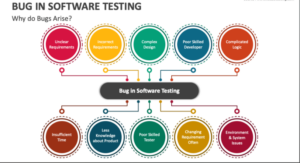The QA team requires someone to oversee and harmonize their activity to ensure that the product development is met. Typically, this is the role of a QA manager. In smaller companies, however, it could be the Project Manager or sometimes the CEO. In any case, the functions and responsibilities of a QA manager in a company cannot be overstated.
To mention a few, the QA manager sees to it that not just the QA team, but every employee, with their unique expertise, work together in the most optimal way. They also ensure that the team works together in a healthy and competitive workspace using the Agile framework.
Having such responsibilities would require a fine blend of both technical and soft skills. While companies are actively searching for a good QA manager, not many QA analysts wear the cap perfectly. If you are a budding or practising QA analyst, and you wish to learn how to become a good manager, this article discusses some key characterizations of a good QA manager. Meanwhile, you can learn more about becoming a QA tester by enrolling in a reputable QA certification course.
Let’s blast off.
- Having an incredible communication skill.
I cannot overstate the need for effective and clear communication in QA roles. Not being able to effectively send and receive information, whether oral or in print, could potentially have devastating consequences. The inability to communicate in clear teams would lead to a bad relationship amongst the team. Followed by poor processes, bad products, and ultimately low customer satisfaction.
- Understand that everyone has a different communication style: As humans, we are not all the same. It is imperative to understand this while communicating with people. Some may prefer to send emails while others may want to use Slack. As a good manager, you have to understand what works best for everybody and tailor your communication in that regard.
- Encourage the QA team to approach you and ask questions: Anybody in the team can discover bugs but if team members are not comfortable asking questions, their ideas remain hidden. You should always be approachable and encourage team members to ask questions when they have any doubts.
- Encourage team members to make contributions: As a sequel to the last point, team members should be able to suggest alternative ways of doing things. Having a bottom-up approach to QA ensures you have an all-inclusive system where everyone’s idea is taken into consideration before a final decision is made.
- Embracing change and passing it on.
It is often said that technology is advancing at a fast pace. As a QA manager, you should be adaptable to these changes and embrace the new ways of doing things. But generally speaking, people do not like change. As a QA manager, you must always seek new ways of making processes easier, faster and more efficient.
It does not stop there however, you should also be able to communicate your findings to your team and influence them to make those changes in their daily work life.
If you are working in a Agile system particularly, you must ensure that the team is encouraged to follow the new methodology while not jeopardising the end result. Some things you can do it stay up-to-speed in the fast paced world are:
- Perform audits to discover whether there are inefficiencies that need attention or an existing workflow that can be improved upon.
- Seek the opinion of the team about the new discovery. It is always important to carry the team along on your findings. Let them have some idea on why some things need to be changed.
- Put together everyone’s opinion and determine the most important changes to me made. Then implement.
Since everyone was part of the change, it would be relatively easier for all and sundry to adapt to the change.
- Trust the team
As the QA manager, your role is not to do everything yourself. You rather should oversee the activities and results of the QA team members. The Junior QA members should be involved in seemingly weightier activities as it does not only give them the room to learn, but also boost their confidence on the job.
Nevertheless, this can lead to situations where a bug finds its way to production. It is important that you do not backlash the team but rather find the root cause of the problem and ensure it does not again. The truth is even the best testers make mistakes. The fear of making mistakes should not mean you are involved in every single activity. There is no faster way of wearing yourself out.
Bottomline is always to learn to delegate, consciously guide them and trust the process.
- Proper time management
The bedrock of an Agile system is the ability to provide results within an allocated time or sprint. As a good QA manager in an Agile environment, you must master how to keep the pace of time. It is not enough to deliver results. The results must be before a deadline. Missing deadlines by any member of your team would eventually fall back to you. This you should be able to manage how the team would and how they can be time conscious.
One good way to do this is to have clearly stated deliverables. Tasks should be broken down in smaller bits and the outcomes of those small tasks are the deliverables. Having deliverables ensure that the team works in a time-conscious manner from the onset and does not have to do a quick job a few days to the final deadline.
You could use project/time management tools such as Slack, Asana, Trello, Jira to keep track of everyone’s activities and deliverables.
- Be hungry for more knowledge
Being a QA manager is not about the title. You must demonstrate a degree of brilliance in your team. And this comes by staying up-to-speed with new technologies and always wanting to learn. Some tips on how to stay updated include:
- Subscribe to QA blogs and newsletters: Reading QA blogs are a great way to stay updated with what’s going around in the testing domain. As a manager, you may not be involved in the day-to-day testing activities but rather be involved in bringing innovation and ingenuity to the team. This requires you to stay updated which you can get from QA blogs and newsletter.
- Check QA job postings: QA job postings are a fantastic way of seeing new technologies in the field. You get to see what new QA jobs require and how you can use these tools to also better your team. This is not something you should do frequently. But doing this once in a while can have a huge toll on the progress of the entire team.
In conclusion
In this article, you have seen what it takes to become a QA manager. It is important to note that these skills can be learned and mastered over time. You can learn more about becoming a QA analyst or tester by enrolling in an online QA training.





























